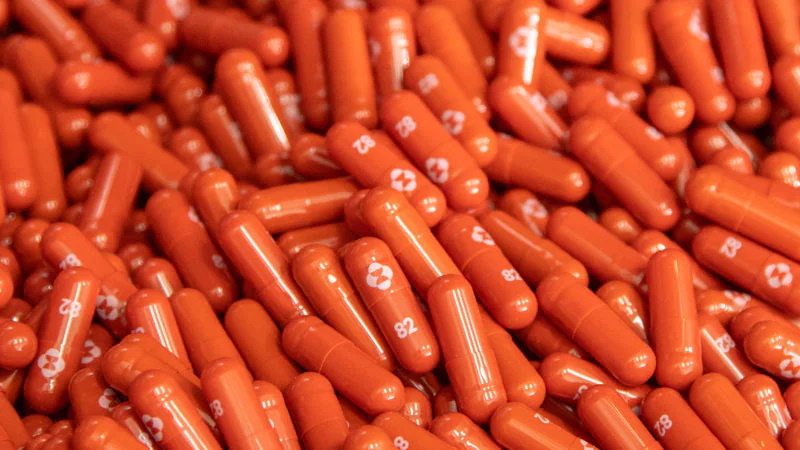Merck preps filings for oral COVID drug, but is it really a game changer?

Merck & Co is on the brink of plugging a gap in the coronavirus treatment armamentarium after its oral drug molnupiravir cut deaths and hospitalisations in mild or moderate COVID-19 in a phase 3 trial.
Merck and partner Ridgeback Therapeutics have said they will see emergency use authorisation from the FDA for molnupiravir on the strength of the data, which suggest the drug could be used in the community to keep people from developing severe COVID-19.
At the moment drugs like dexamethasone and Gilead Sciences' intravenous antiviral Veklury (remdesivir) can be used in hospitals to reduce mortality in severe COVID-19.
Antibody therapies meanwhile have been developed for non-hospitalised patients, but these still have to be administered by infusion in a clinic.
A treatment that could be given to patients at home that would prevent them developing more severe symptoms could save lives and reduce the burden on hospitals during the crisis, according to Wendy Holman, Ridgeback's chief executive.
Like Veklury, molnupiravir is a polymerase inhibitor that blocks the replication of the SARS-CoV-2 virus, and has been shown in lab studies to target other respiratory viruses like influenza and Ebola.
The results of the MOVe-OUT trial in people with mild or moderate COVID-19 show a significant 50% reduced risk of hospitalisation or death at a planned interim analysis for molnupiravir compared to placebo, cutting the actual risk to 7% from 14% 29 days after the start of dosing.
The trial is fairly small with fewer than 400 subjects per arm, so the numbers involved are low, but Merck and Ridgeback have reported zero deaths with molnupiravir versus eight deaths in the placebo group at that timepoint.
It was carried out in people at higher risk of progressing to more severe COVID-19, including those who are older or have other health problems like obesity, diabetes and heart disease.
An earlier trial of molnupiravir in severe COVID-19 called MOVe-IN was stopped in April on the grounds there was insufficient clinical benefit with the drug. The different outcomes suggest the drug is more effective when administered in the earlier stages of infection.
One commentator welcomed the positive outcome in MOVe-OUT, but cautioned against getting "carried away" by the results.
"It's worth remembering that…dexamethasone was found to save around a third of people who would have died with severe COVID-19, but its clinical introduction did not prevent nearly 100,000 deaths in the UK in the past 12 months," said Dr Simon Clarke, associate professor in cellular microbiology at the University of Reading.
There still isn't much data available on the side effects of molnupiravir, he added, and subjects in the trial were instructed to abstain from heterosexual sex or use contraception, which might point to a risk of birth defects.
Prof Peter Horby, an infectious disease specialist at the University of Oxford, has also sounded a note of caution, as the data suggests that "quite a lot of people need to be treated to prevent one hospitalisation or death," and that means "the drug needs to be very safe and affordable."
Merck already has a supply deal in place for molnupiravir with the US government, which has agreed a $1.2 billion order for 1.7 million doses at a price of $700 per course, as well as deals with other countries around the world, pending regulatory approvals.
The company said it expects to produce 10 million courses of treatment by the end of 2021, with more doses coming in 2022 pending regulatory approvals. It has also signed licensing deals with drugmakers in India to make the drug available more widely in low- and middle-income countries.
The big challenge will be to target the drug effectively, and intervening with it early enough in the course of infection to have an impact on the virus. In the MOVe-IN trial, all subjects were within five days of symptom onset, which may be more challenging to achieve in the community.
According to Dr Peter English, immediate past chair of the BMA Public Health Medicine Committee, quite a lot of the people who develop severe COVID-19 don't have any significant risk factors.
"Unless an antiviral medication could be made so cheap and so safe that it can be used 'on spec' by people who might have COVID-19, they are unlikely to be widely useful," he remarked.












